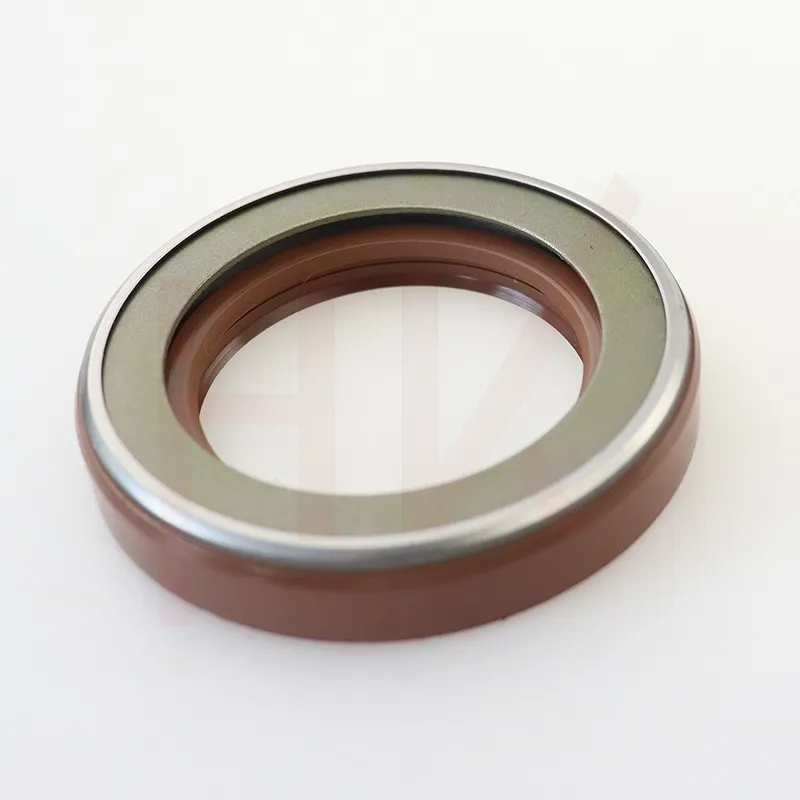Oct . 30, 2024 18:32 Back to list
hub bearing seal
Understanding Hub Bearing Seals Their Importance and Functionality
Hub bearing seals play a crucial role in ensuring the longevity and performance of vehicles, particularly in maintaining the integrity of the wheel hub assembly. These seals are designed to prevent the ingress of contaminants such as dirt, water, and debris, which can significantly affect the operation of bearings. Moreover, they help in retaining lubricants needed for smooth functionality, thereby prolonging the life of the bearing and enhancing the overall performance of the vehicle.
At the core of the hub bearing assembly is the bearing itself, which allows for the smooth rotation of the wheel. This component is subjected to various stresses and loads during operation, making it essential to have an efficient sealing mechanism. Hub bearing seals are typically made from durable materials such as rubber or polymer, which can withstand varying temperatures and resist wear and tear over time.
One of the primary functions of these seals is to keep contaminants out of the bearing assembly. When dirt or moisture enters the hub, it can lead to corrosion and premature wear, resulting in a noisy and inefficient wheel movement. The presence of contaminants can also disrupt the lubrication, leading to increased friction and heat, which can further exacerbate damage.
hub bearing seal

In addition to protecting against external contaminants, hub bearing seals also serve to contain the lubricant within the bearing. Bearings require a consistent supply of grease or oil to function optimally. If the lubricant leaks out due to a faulty seal, it can lead to inadequate lubrication, causing metal-to-metal contact and increasing the risk of bearing failure. Thus, a well-designed seal is vital in maintaining the necessary lubrication levels within the assembly.
The design and manufacturing of hub bearing seals have evolved over the years. Modern seals often incorporate advanced technologies, such as dual sealing lips or specialized coatings, to enhance their performance. These innovations provide additional barriers against dirt and water while ensuring minimal friction during operation. Moreover, the right seal can significantly reduce the risk of failure, resulting in decreased maintenance costs and improved safety for vehicle users.
When replacing hub bearing seals, it's essential to choose high-quality products that meet the specifications of the vehicle manufacturer. Poor-quality or incorrectly fitted seals can lead to premature failure of the bearing, negating the benefits of a replacement. Therefore, proper installation and attention to detail are paramount during this process.
In conclusion, hub bearing seals are an integral part of the wheel hub assembly, vital for protecting bearings from contaminants and retaining lubricants. Their role is crucial in ensuring the effective functioning of vehicles, ultimately contributing to safety and reliability on the road. Regular inspection and timely replacement of worn seals can prevent costly repairs and maintain the performance of the vehicle, making them an essential aspect of automotive maintenance.
-
Unlocking the Potential of Hydraulic Systems with Essential Sealing Solutions
NewsAug.06,2025
-
Unleash the Power of Your Hydraulic Systems with Our Premium Seal Kits
NewsAug.06,2025
-
Specialized Hydraulic Seal Kits for Breakers, Pistons, and Presses
NewsAug.06,2025
-
Revitalize Hydraulic Systems with Premium Repair and Seal Kits
NewsAug.06,2025
-
Fortify Your Cylinders with Premium Sealing Solutions
NewsAug.06,2025
-
Elevate Hydraulic System Reliability with Specialized Seal Kits
NewsAug.06,2025
-
TCN Oil Seal Metal Ring Reinforcement for Heavy Machinery
NewsJul.25,2025
Products categories
















